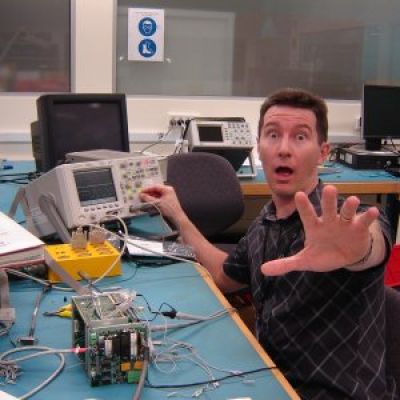Listen to your hosts Dave Jones & Chris Gammell talk about electronics design and the electronics industry in general. If you have any interest in electronics at all, from hobbyist/hacker/maker to engineering professional you'll find something of interest here.
https://theamphour.com
#630 – Renewable Energy Policy with Ari Gerstman
Welcome Ari Gerstman, from the US Department of Energy Office of State and Community Programs
- Chris and Ari went to high school together and Chris was excited to have Ari on the show to talk about how renewables are implemented in the US
- Ari recenly started his DOE job
- He was interested in joining the organization after a large funding effort in the US Senate and House (signed into law)
- The Inflation Reduction Act (IRA)
- The Bipartisan Infrastructure Law (BIL), also known as the Infrastructure and Investment and Jobs Act (IIJA)
- There is now $100B going towards electrification and upgrading of the US infrastructure and homes in the US.
- The funding is driving supply side incentives to move to renewables, instead of Cap and Trade to disincentivize carbon rich activities.
- Chris asked Ari about the green credits market and whether people should pay attention (John Oliver carbon offsets piece discussed in the past)
- What are the tradeoffs of targeting upgrading homes for efficiency vs solar installs on a roof?
- Solar in the US
- Ari working in a narrow subset at DOE
- Chris has read exactly one book about The Grid, talked about many times on the show before.
- Running capacity building
- Ari is part of the Office of State and Community Programs, which administers a portion of the overall 100B
- There is a large amount of net new electric load, in the form of EVs, appliances, heat pumps, etc. This could roughly double electricity usage for providers and transporters of energy.
- Tennesee has a large manufacturing base and are growing into batteries. This is map of battery activity in the US.
- Ari has 84kW battery in his car, these kind of capacities will only grow over time.
- Is new load a good thing or a bad thing?
- Power providers are excited about it!
- Investor owned utilties are natural monopolies, which is why there is something called a Public Utility Commission (PUC) to regulate them.
- Ari and Chris made up an example about a fake US state (Electifica) with a fake provider company (Utopia), so that we weren’t talking about any specific examples.
- Utopia trades on the stock market and there are known returns, so there are expectations about how things will work.
- Utlities are incentivized to maximize costs because they make percentage returns on the costs passed to customers. PUCs want the opposite.
- Microgrid
- DER – Distributed Eletric Resources
- Energy efficiency and demand response programs are where they notify customers of high load and ask the customer to turn things down. Sometimes there is “Smart Grid” style programs where the utility can take action centrally (turning down thermostats, etc)
- There was a Demand Reponse Brooklyn Queens program that worked
- Building a substation is very expensive, but gives an additional control node
- What is the effect of solar on the grid?
- Microgrids can enable additional cross-grid control, but it gets tricky when figuring out billing for the crossing between subgrids (because utilities have very different billing paradigms)
- Peaker plants need to spin up very quickly and are very dirty.
- Utilities encouraging people to buy battieres
- The Duck Curve
- A net zero passive house could extend usage off a battery backup system and highly reduce load on the grid.
- Building codes can have a large impact on future energy usage by determining how future homes load down the grid.
- Codes in Florida also help things like disaster response.
- There is a large chunk of that $100B going “Transmission sighting”, because additional control nodes on the grid will require additional land (often in expensive areas)
- Ari previously worked on renewables for the District of Columbia.
- With rooftop and solar on the edge of the city, they could cover about 10% of city usage.
- Power companies moving from owning and operating everything is changing paradigms generally.
- How can you learn more?
- Ari suggests reading legislation
- BIL
- IRA
- Check out the Energy.gov site for general info
- Read more about Ari’s programs at the DOE SCEP
- Ari suggests reading legislation
